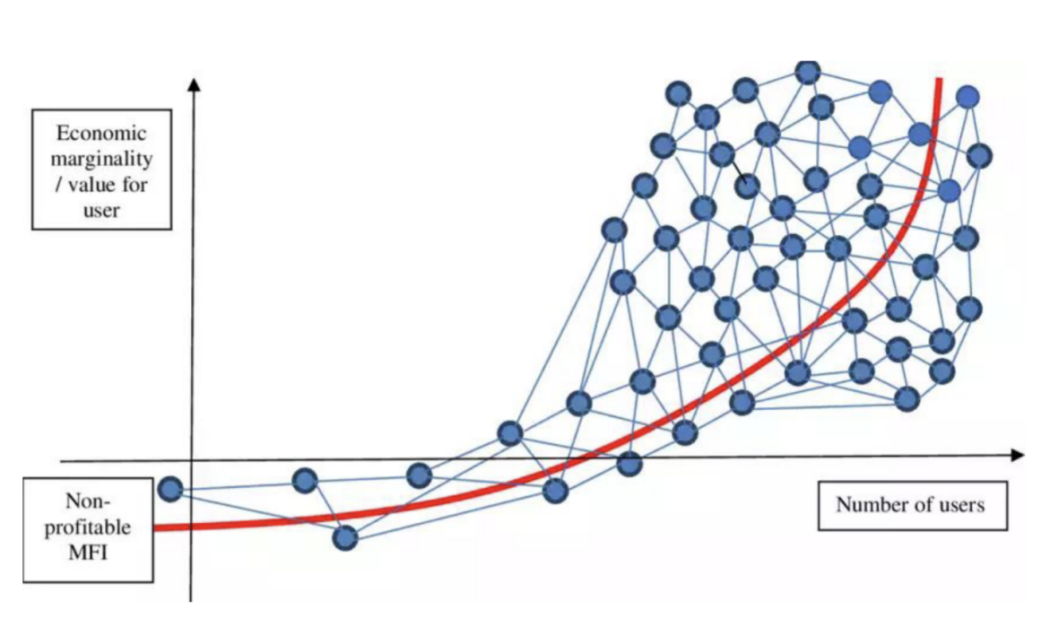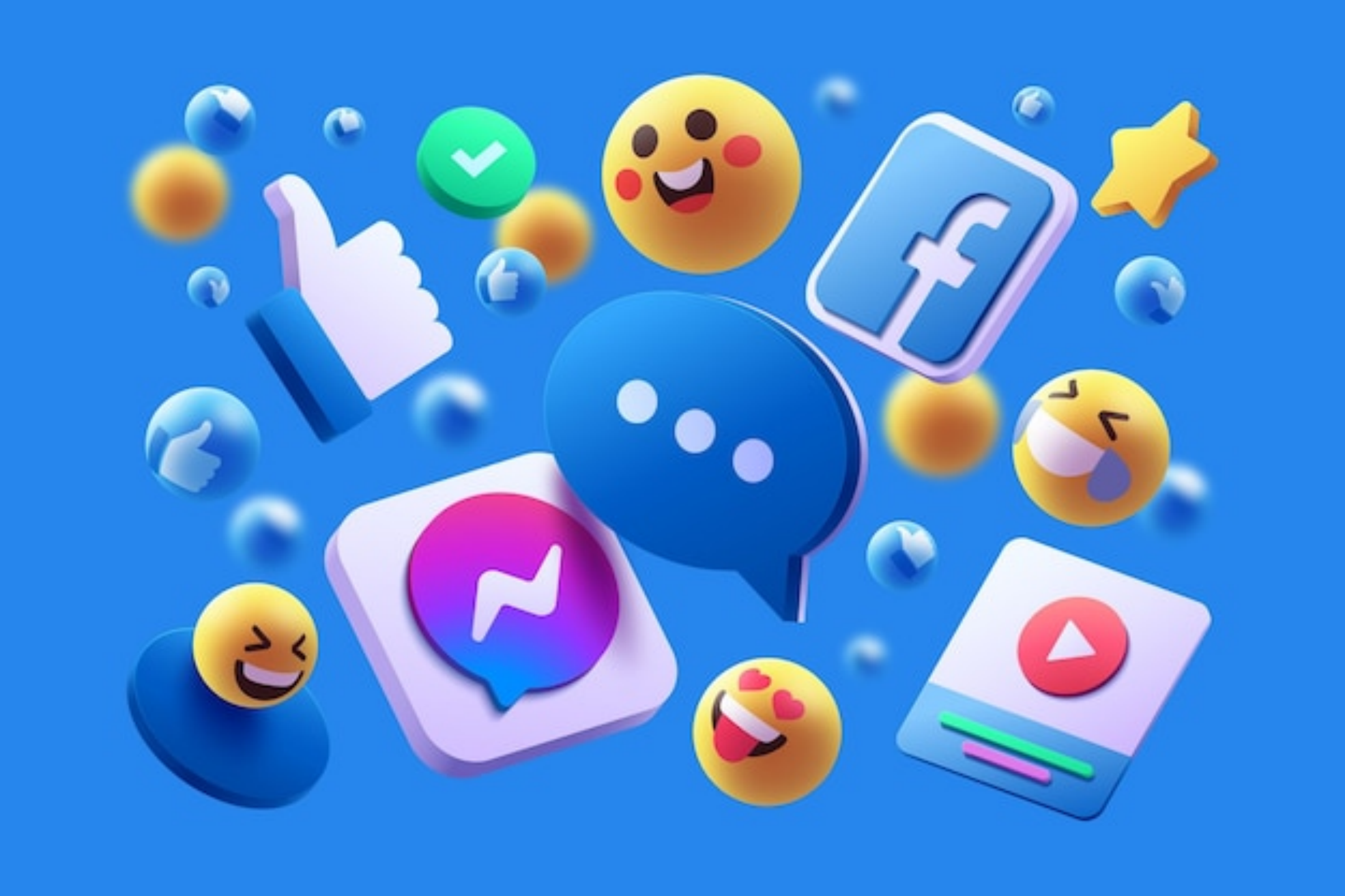In Web2.0, business giants control all user data recorded on SNS platforms and trap users in an echo chamber by feeding them with information filtered by algorithms. Additionally, relying on user information and content generated by creators, tycoons earn huge profits, which are never fairly distributed to users and creators.
As new categories like DeFi, GameFi and NFT grow and evolve, Web3.0 has continued to expand in terms of user scale and industry influence, and socializing has become an essential link. That said, the existing social products in Web2.0 are highly centralized and thus cannot meet the demand for data ownership, the right to profit, and privacy among Web3.0 users. As users need new SNS platforms, social products are undergoing a paradigm shift from being “platform-centric” to being “user-centric”.
In the Web3.0 era, blockchain-based decentralization technologies make such user information as content, social data, identity, and reputation decentralized and composable, without having to rely on any centralized platform. Such a transformation will bring solutions to issues such as data ownership, the right to profit, and privacy under a new paradigm, thereby building social networks that place users at the center.
Why must Web3.0 social platforms be tokenized?
In the crypto community, concepts that include the creator economy, owner economy, and fan economy have gained traction. In an open financial environment enabled by DeFi, the valuation system through which market players and crypto users assess “social value” is constantly being updated. A major reason for tokenizing socializing is to monetize “community influence”. Through social tokens, both issuers and holders can benefit from “influence” more directly.
Moreover, as a catalyst, tokens can help content creators quickly get through their infancy. At the beginning of their career, content creators often have to struggle as they try to build their own community (fans, subscribers, etc.), and their “flywheel effect” won’t really take off until they have built a large community of fans and followers. Therefore, creators can speed up the growth of their influence by transferring part of their future interests to users by offering them certain privileges. Specifically, a creator can distribute the expected profits to be generated by his/her future influence by issuing tokens, and then distribute such returns to early members of their community according to their contribution, which will encourage such followers to help him/her attract more users and fans. In short, social tokens allow creators to get early investment and bring economic incentives to early users, which plays an essential role in the development of any network.

Types of social tokens
Today, mainstream SocialFi projects include Whale, Chilliz, Rally, and Friends With Benefits. Meanwhile, players and projects continue to venture into the field. Although social tokens only make up a negligible part of the whole crypto market in the first half of 2021, their market share has kept rising since this year, as evidenced by the emergence of a great many outstanding projects. According to Coingecko, Whale, the No.1 social token in terms of market cap, recorded a peak value of $2.6 billion. At the same time, the SocialFi category has witnessed a steady inflow of new investment institutions and funds. Today, we will dive into three types of social tokens according to their issuer status: personal tokens, community tokens, and social platform tokens.

1) Personal tokens
Personal tokens are mainly issued and controlled by individuals. For example, a YouTuber can promise to offer holders a certain percentage of his/her advertising revenue, which constitutes part of the creator’s future profits. He or she could also provide other benefits, which include private social media groups accessible to early fans. While giving away their future profits, creators gain an alliance in the early stage of their career, which helps them expand their existing social capital such as influence, and network scale, as well as human capital including skills, insights, and creativity. From the perspective of holders, holding personal tokens at an early stage promises the following benefits:
1. Exclusive access: Early holders can join private social media groups, obtain first-hand information about the creator, or chat and interact with their idols.
2. Discounts: Holders of personal tokens can get discounts on the goods, events, or NFTs sold by creators and their brands;
3. Identity & Loyalty: Holding an artist’s or creator’s personal tokens often represents proof of social identity and social capital. Although the benefits of having a certain identity or status are generally vague compared to tangible benefits such as “discounts” or “free goods”, there’s no denying that social capital is growing as a type of asset, and the social status that goes along with social capital may also improve over time.
2) Community tokens
Community tokens are primarily issued and controlled by a group, which is normally managed by a Decentralized Autonomous Organization (DAO). These tokens play a key role in community governance. For instance, holders of community tokens can influence the business development and key decisions of the corresponding group or organization through voting, which also determines how the internal funds of that organization are distributed and managed. Additionally, community members can also vote on proposals submitted by other members. Fan tokens, which are tokens issued by a sports organization to its fans, are a type of community token. Right now, holding fan tokens gives users voting power and allows them to obtain derivative benefits such as autographed goods.
Furthermore, community tokens are also an extension of the benefits promised by personal tokens. Meanwhile, personal tokens can also evolve into community tokens. Here, Whale is a great example. Whale was originally issued by Whaleshark, a famous NFT collector, and later evolved into a community token as Whaleshark’s community expanded, which democratized the ownership of the NFTs the collector owns. In addition, the treasury is also controlled by the community. Through Whale DAO, decisions concerning the governance of the NFTs are made by Whale holders. This shows us that many personal tokens may become community tokens and expand their network scale over time.
3) Social platform tokens
Social platform tokens give users control over a platform, which facilitates the issuance and exchange of social tokens. Issuing and managing tokens can be quite complex, which triggered the appearance of some platforms that focus on the issuance, distribution, and transaction of personal tokens and community tokens. Rally, for instance, is a typical social platform that provides the primary tools needed for creating social tokens. Twitch, a video game live-streaming service, can create its social token on Rally to reward its creators and community members. Rally encourages non-crypto native media platforms to engage with mainstream users by issuing social tokens.
Conclusion
At the moment, social tokens are tokens backed by an individual or organization’s reputation, profitability, services, and brands, and they are often created to encourage users to contribute to the community. Sometimes, individuals or organizations also adopt unique token models to motivate user behaviors that generate value for the community. Personal tokens are also committed to creating more value for individual artists, content creators, and issuers. As most issuers already have a community or fan base when launching their social tokens, these tokens have demonstrated many Web3.0 features under the slogan of the “creator economy”. In the meantime, we have continued to witness the launch of new social tokens. On the one hand, the rise of social tokens has created new ways of generating value on social media. Together with NFTs, social tokens, which create a symbiotic relationship between creators and their followers, play a key role in decentralized socializing. In the future, social tokens, be they personal tokens, community tokens, or social platform tokens, might deliver enormous value.
* This article offers no financial advice.



